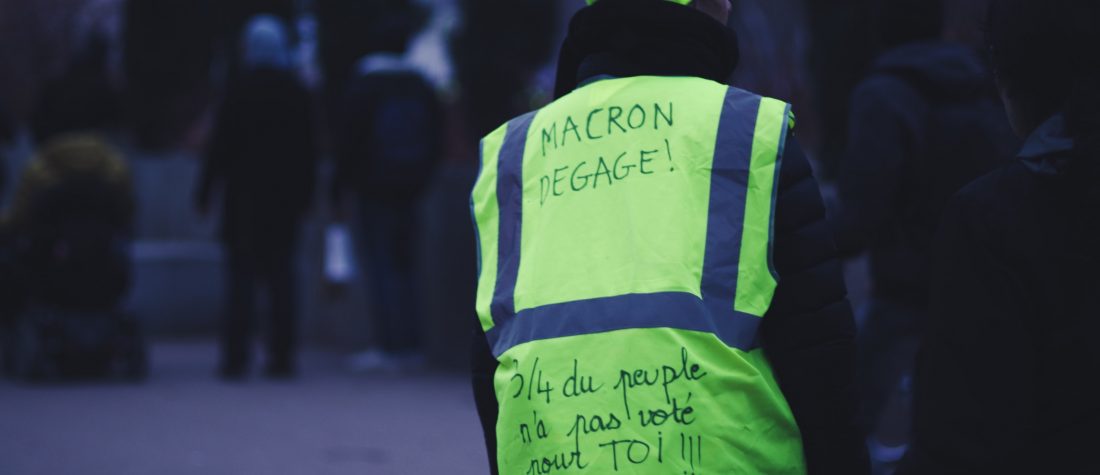At this stage of France’s presidential campaign, the last man to doubt whether Éric Zemmour will be in the running come May 2022 may be… the man himself. Currently on tour promoting his latest book—loosely translated as France Has Not Yet Said Its Last Word (La France n’a pas dit son dernier mot)—the right-wing intellectual’s public appearances across the hexagon are quickly morphing into campaign rallies. Whilst he keeps answering the media’s queries in non-committal terms, a team of campaign staffers has been hired. This includes his longtime chief of staff, the énarque Sarah Knafo, having taken leave from her appointment to the Court of Auditors. A headquarters has been rented in central Paris.
The die is cast
Although he may not publicly announce his bid until late November, the country’s TV and radio regulating authority, the Conseil Supérieur de l’Audiovisuel (CSA), recently ruled to limit Zemmour’s airtime on the grounds that his run is now a foregone conclusion. Zemmour has enjoyed virtually unlimited exposure through his role as a presenter on CNews, a Fox News-style outlet that is now the second most-watched channel in the country.
Move over, Le Pen
The polls are encouraging too, even taking into account the difficulties of predicting a two-stage vote. First round voting intentions for the first round favouring Zemmour last week surpassed those for Marine Le Pen for the first time since polling for this race began. This would make a face-off with Macron the likeliest run-off match. The odds in that scenario are surprisingly favorable for Zemmour, too. Whilst Le Pen is ultimately guaranteed a resounding defeat if she were to make it through the first round, Zemmour appeals to a broader electorate, particularly among the kind of centre-right voters who would begrudgingly favor Macron instead of Le Pen.
“My strategy is to revive the RPR”, he has repeatedly claimed in reference to the neo-Gaullist party founded by Jacques Chirac in the late 1970s that later morphed into Nicolas Sarkozy’s Union pour un Mouvement Populaire (UMP) upon absorbing several centrist forces, today called Les Républicains. Only he, in Zemmour’s telling, can coalesce Le Pen’s lower-class, yellow-vest electorate and the patriotic bourgeoisie of Les Républicains all under a single ticket.
A political eruption
Mind you, this is not because Zemmour is any less radical. For The Telegraph’s Anne-Élisabeth Moutet, Zemmour’s discourse relies on a tried-and-tested right-wing trifecta: immigration, identity and Islam, a point she made on the latest episode of the Uncommon Decency podcast. A recurrent theme of his has been to dust off the somewhat conspiratorial theory hashed out by a fellow right-wing intellectual now proscribed from respectability, Renaud Camus. The great replacement (le grand remplacement) contends that France’s political class and moneyed interests have conspired to substitute the country’s population of white, Gallic stock with a new brown and Islamic majority, thus erasing France’s Judeo-Christian moorings.
Much like Donald Trump, Zemmour’s eruption into the electoral conversation has been propelled by the destruction of taboos, such as the one hovering over Islam’s compatibility with France’s secular, enlightened ethos. The Islamic faith, Zemmour claims, is unlike any other, in that it demands an abiding loyalty to the Umma, which in practice contradicts France’s social contract. If anything, Zemmour the Algerian Jew displays a total indifference to being labeled an Islamophobe. This is in stark contrast to the overwhelming majority of politicians and pundits alike..
Faithful or faithless?
On the question of his origins, Zemmour eschews all suggestions of his Jewishness. He describes himself simply as “a Frenchman of Berber extraction”. Perhaps he is weary of Judaism’s own tensions with France’s concept of laïcité – namely wearing the kippah in public spaces and the ritual slaughtering of kosher meat.
But knowing the views and electoral leanings of those who share his faith (provided he is, in fact, an observant Jew himself – which is anybody’s guess at this point) would tell us a lot about how the race is shaping up. If only France allowed polling and electoral returns to be conducted by ethnic background, as Jews are often the “canary in the coalmine” of broader societal trends.
When it comes to Jews’ views of Zemmour we can thus only guess, but the scornful stance of established Jewish organizations obscures the appetite for just Zemmour’s kind of politics across much of the grassroots. Granted, Jewish elders from the Conseil Représentatif des Institututions Juives de France (CRIF) have sued Zemmour over his alleged denialism of the Vichy Regime’s collaboration in mass deportations. But Jews of lower socio-economic strata who can’t afford to flee the rising violent antisemitism of the banlieues are craving for a tough-on-crime message and a willingness to confront the problems of Islamic immigration head-on. “Jews today aren’t being killed by hordes chanting ‘Heil Hitler’”, Zemmour claimed recently on RMC, “but by terrorists yelling ‘Allahu Akbar’”.
France’s new spectrum
Zemmour’s candidacy would, more obviously than Le Pen’s, crystallise the ongoing realignment of French politics from a right-to-left spectrum towards one in which the two extremities are open versus closed views of society. In 2017, the candidacy of another political upstart, Emmanuel Macron, gave a single platform to the thriving, cosmopolitan middle and upper classes of France’s major cities and their generally optimistic views of globalisation and social change (i.e. the open side). Given France’s presidentialist and adversarial political regime,the opposing camp who tend towards the closed end of the spectrum crave a messenger of their own. With Zemmour’s uncanny ability to phrase the French elite’s abandonment of the native underclass, Macron may have found himself a worthy adversary—one who is well up to the challenge.
Jorge González-Gallarza (@JorgeGGallarza) and François Valentin (@Valen10Francois) are co-hosts of the Uncommon Decency podcast on European issues (@UnDecencyPod).


